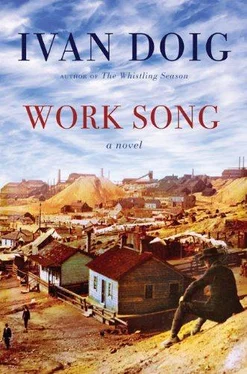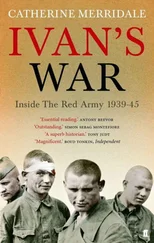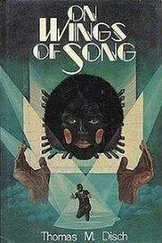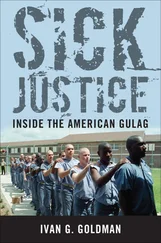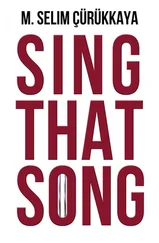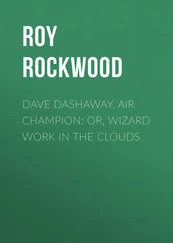Mindful of his manners, the young man stood and turned to me with a soldierly correctness that I could have predicted. He’d had that same deportment while tendering the union’s envelope of benefit to the widow Dempsey, and in marching like a Roman at the head of the miners in shift change on the Hill. Rabrab gazed up at him as if she’d had him made to order.
“The men in my life,” she announced fondly. “Jared Evans, this is Morris Morgan.”
“Morrie,” I amended over the handshake, to put us on familiar terms.
“Jared,” he said, perhaps humorously, perhaps not.
As soon as chairs were under us, he sat back and regarded me through dark deep Welsh eyes that reminded me of Casper ’s, only more reflective. Beyond that, he and Rab together were like matched cutouts in charcoal paper by a scissor portraitist, his slicked-back hair black as hers. Any children of these two would be ravens. Yet there was something even more striking about this lean chiseled man, and it took me a second to single it out. His ears were different sizes; the left one was missing its earlobe, clean as a surgery. Together with the fathoms in that gaze, it gave him the look of a reformed pirate. I tried not to stare at the foreshortened ear, which of course only creates another level of attention.
Still examining me with those grave eyes, Jared spoke as if I were a question brought before the podium. “You’re the cryer. You get around.”
“A temporary appointment,” I brushed away my career of wakes.
“The best kind to have where a coffin is involved.”
Rab rippled a laugh. “Now he’s the resident genius of the library, aren’t you, Mr. Morgan? Have you read every book in it by now? I remember when you knew everything there was to know about comets, and that was just the start of-”
“Flattery does not have to be laid on more than an inch thick, Rab,” I waved that to a halt. Basking in her words more than I should have, I shared to Jared: “You must know how she is by now-when her enthusiasm gets going, she’ll talk your ear off.”
Immediately I wanted to crawl under the table. Jared’s dark brows drew down as he leaned in and pointed a cocked thumb and finger at me like a pistol, and I wildly wondered what I was in for. Then, of all things, he winked.
“A German bullet took care of that for me. I got off lucky-they didn’t call that sector Dead Man’s Hill for nothing. A medical corps-man slapped a patch on me and I went right back into the thick of it.” Fingering what was left of the ear, he dispatched a droll half of a smile to the rapt Rab and around to me. “I have to watch out not to be too proud of it-the earmark none of the rest of the herd has.”
As when Sandison plunged off into livestock terminology, I chuckled uselessly.
Rab came to my rescue. “Mr. Morgan, you need to hunt up some food. We had to start, Jared has a meeting. He usually does.”
“To dicker the lost dollar out of the Anaconda lords and masters?” my natural interest in wages prompted me to ask.
The question was flicked right back to me. “How is it that you know we’re in there dickering?” Over a deliberative sip of his coffee, the union leader held me in that compelling gaze again. What was it about the Richest Hill on Earth, that I seemed to be a suspect of some kind no matter which way I turned?
“My usual dining partners,” I alibied hastily, “are Griffith and Hooper at the boardinghouse. They discuss matters.”
Jared’s look softened somewhat. “If that’s who you’re hanging around with, you probably know more about anything and everything in town than I do.”
In the time soon to come, I would learn that Jared Evans had been thrust from the thick of one war into that of another. The combat between the hierarchies of Europe had at last reached a mortal end, while the struggle he came home to on the Hill showed no sign of abating as long as there was corporate capital and there was unionized labor. Flint and gunpowder had the same relationship. Put simply, although Hoop and Griff in their telling of it to me seldom did, the Great War had crippled the once-mighty Butte miners’ union; its bargaining power had been hampered by government decrees, rivalry from the IWW, and Anaconda’s imperious determination to fatten profits at the expense of wages and workers’ lives. Jared alit back into the middle of all this, chosen for that sense of capability he carried as naturally as the set of his shoulders. The better I came to know and observe him, I could not help thinking of Rab’s beau as a paradoxical version of Lucius Quinctius Cincinnatus, the Roman soldier who fought his battle and returned to his plow; Jared had been summoned from the battlefield to plow the ungiving ground of Butte’s conflicts.
“You two,” Rab broke in now, her napkin a flick of white flag between us, “would rather talk than eat, I know, but that’s not me.” She was onto her feet, poised in the direction of the dessert counter. “Rhubarb pie. I can’t resist. Jared, sweet, can I bring you some?”
He leaned back in his chair and stretched mightily, a man with much on his mind and a long night of negotiating ahead of him. “Just some more java, thanks, if you have enough hands.”
“Back in a jiffy,” she promised. She sailed off, spiffy as a Riviera princess in the shorter style of dress that was coming into fashion; you could actually see she had legs.
“I had better follow Rab’s example,” I said, starting to get up to find a meal for myself. Only to be stopped in mid-rise by Jared’s thumb pinning the sleeve of my suitcoat to the table. It was a very substantial thumb.
“How does it come to be”-unmistakably the words were those of a stern young fiancé-“that you call her ‘Rab’?”
“I, ah, officiated on that name.”
That didn’t seem to help. “Officiated how?”
Rapidly I told the story of Barbara’s verbal somersault into Rabrab in my classroom. The thumb grudgingly lifted from the fabric of my sleeve. “All right,” he granted, “it makes two of us who call her that. That’s a great plenty.”
With a measure of relief I moved off toward wherever the food waited. “You’re lagging,” Rab scolded as she passed me, bearing a tray with her slice of pie and Jared’s cup of coffee. “Only until I can track down the breaded veal,” I assured her. Grace had many virtues as a landlady, but it had been a considerable time since I had seen a cutlet.
Cafeteria dining, Butte style, evidently meant that half the clientele was fetching mounds of food for itself at any given moment, and so I had to work my way through the crowd to the counter where the meat dishes were listed, past a huge mahogany breakfront stacked with glassware and coffee cups and saucers. Squeezing around that furniture, I popped into an opening in the meal line, nearly bumping into the larger-than-life figure piling a plate with liver and onions.
Typhoon Tolliver and I stared at each other.
“The rumor is wrong, then, Typhoon. You don’t eat hay.”
“You,” he said thickly. Beside his tray, I saw his fists ball up. Something about the way I thrust my hands into the side pockets of my coat halted any further movement from him. I had decided that if it came to blows, I would try to hit him on the left fist with my brass knuckles, in the hope of putting his best punch out of action. But I did not particularly want to test that tactic, and from his slow, perplexed blinks, Typhoon seemed not sure he wanted to initiate anything either. Before he could think it over too much, I rushed to say: “The crowd in here is not going to be entertained by you beating me up in public-this isn’t the boxing ring.”
“No, it ain’t,” he agreed with that.
“Where’s”-I cast a hasty glance around for the telltale set of sideways eyes-“your partner in crime?”
Читать дальше
